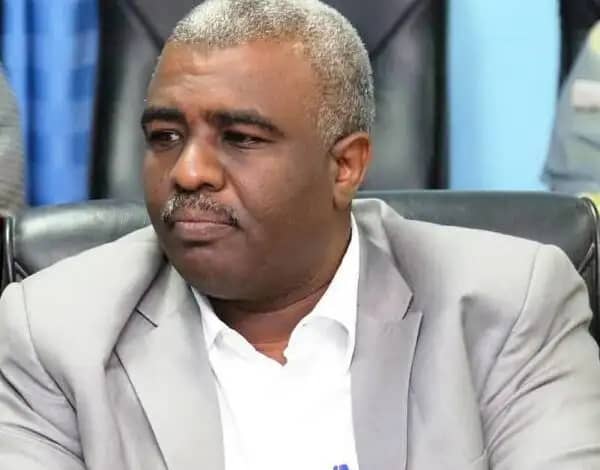Yesterday, the United Nations High Commissioner for Human Rights, Volker Turk, stated before the Human Rights Council that “Sudan is trapped in a proxy war aimed at controlling its natural resources,” and warned of crimes of genocide, rape, and forced displacement. This constitutes a UN acknowledgment that correctly characterizes the war as one with terrorist features, managed with external financing and regional support.
As is well known, the man holds the highest human rights position at the UN, making this an indisputable international testimony regarding the nature of the aggression against Sudan. This important statement opens the door to legal and moral responsibilities toward Sudan, requiring support to eliminate this rebellion, which is regionally backed in pursuit of its wealth and resources.
Strategically, this event represents a subtle revolution in the international scene, as the voice of legitimacy has gradually shifted from the rhetoric of an “internal civil war” to that of “external aggression through local proxies.” This shift carries political gains for the Sudanese government, as it paves the way to legitimize internal and external mobilization under the banner of self-defense and sovereignty.
Simultaneously, the Sudanese Ministry of Foreign Affairs welcomed the Human Rights Council’s decision, which affirmed Sudan’s sovereignty and territorial integrity and rejected any parallel authority. It confirmed its commitment to cooperation in the field of human rights, noting that the UN High Commissioner’s office in Sudan is responsible for monitoring violations and achieving justice for the victims.
In response, the Sudanese government announced a general mobilization and called on citizens to bear arms in a powerful speech by the Chairman of the Sovereignty Council the day before yesterday from the village of Al-Sariya, which witnessed a massacre that claimed more than 120 civilian lives according to international reports. This announcement goes beyond responding to the crimes of the Rapid Support Forces, forming a strategic shift toward a national mobilization aimed at protecting the state and consolidating its entity.
This new characterization of the conflict, according to Turk, grants the Sudanese government wide political and popular legitimacy to conduct a defensive war that can no longer be portrayed as an internal conflict or a struggle between two generals, as some depict it.
The UN’s recognition that the war is linked to external ambitions and interests in natural resources places the international community before legal and moral responsibilities and brings closer the possibility of classifying the Rapid Support Forces as a terrorist organization.
This option has become viable, especially after the recent statements of the U.S. Secretary of State, which explicitly condemned the Rapid Support Forces for committing “systematic atrocities” in El Fasher, alongside an international call to halt their support. These positions coincide with serious deliberations in Washington to classify them as a terrorist organization, within an escalating process based on field evidence and legally documented massacres.
If the scene is reconstructed according to this new equation that combines Al-Burhan’s mobilization and giving the war its legal and political framework, it can be said that Sudan now stands on the threshold of a new phase, titled: “The Battle for Sovereignty and Repelling Aggression.” A state defending the unity of its land, while a militia fights on behalf of external parties who see Sudan’s resources as an opportunity and its chaos as a field to achieve their goals.
Today, we face a new international scene moving in favor of the Sudanese state, if it is well utilized. For the first time since the outbreak of the war, there exists a clear ground that the Sudanese government and its allies can build upon to achieve three main objectives:
Escalating the military confrontation internally and externally as a legitimate defensive war against a terrorist militia, not merely a political dispute or a struggle for power.
Mobilizing regional and international diplomatic support to push the Security Council and other regional and international organizations, or other relevant entities, to issue binding decisions to dry up the funding and armament sources of the Rapid Support Forces.
Opening the door for international legal accountability against the militia leaders and their financiers, based on UN reports and documented Western media.
It can be said that Sudan has achieved notable progress in its diplomatic path following the entry of the Rapid Support Forces into El Fasher, as the Ministry of Foreign Affairs submitted a legally documented file to the United Nations regarding the violations, resulting in a clear condemnation from the Human Rights Council and a call for investigation and accountability. This move indicates a transition, arranging the political and military scene according to a new narrative that strengthens the state’s legitimacy and weakens the position of the militia’s supporters domestically and externally.
In this context, the convergence of Turk’s statement with Al-Burhan’s mobilization constitutes a pivotal moment granting Sudan and its allies broader political cover to confront interventions and support for the conflict’s agents, whether on its soil or in the capitals that back them.
According to #Face_of_Truth, Sudan today faces a war that surpasses the binary of army versus militia, becoming a struggle over the country’s future, between the will of a people seeking to preserve its independence and regional and international powers seeking to reshape it. Between the declaration of mobilization and Turk’s acknowledgment, Sudanese citizens must rise with awareness to preserve national memory and defend sovereignty. The hope remains that this awareness transforms into a comprehensive national project that transcends the horrors of war and lays the foundations for a just peace, deriving its strength from identity, justice, and shared destiny. Nations are not protected by bullets alone, but by awareness and vigilance.
Wishing you health and well-being.
Sunday, November 16, 2025
Shglawi55@gmail.com

